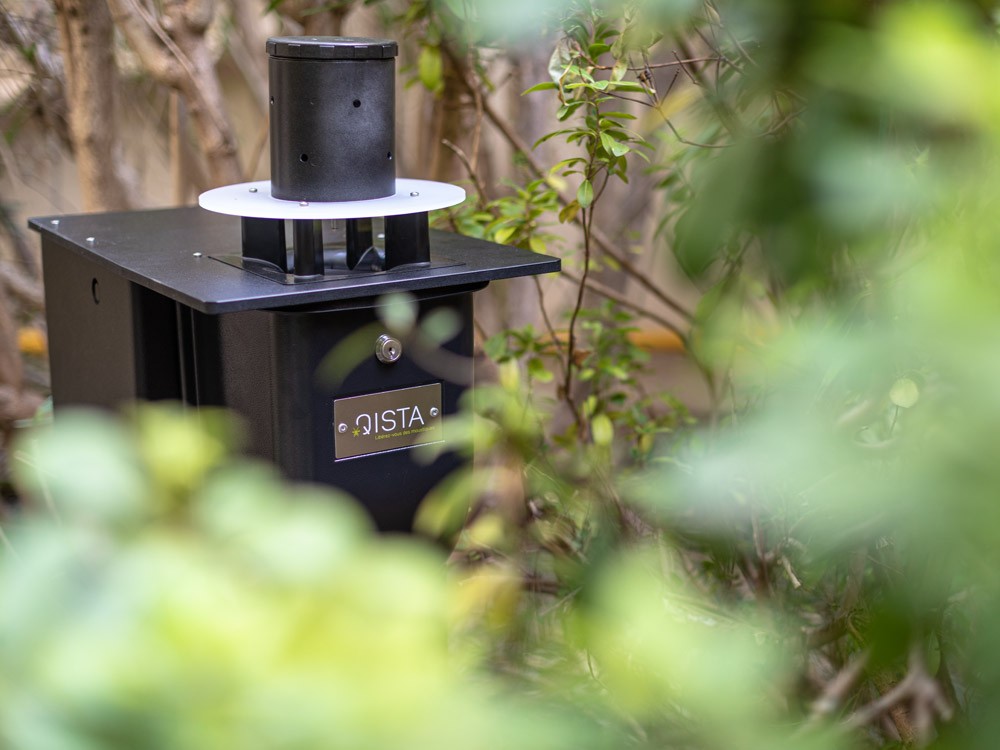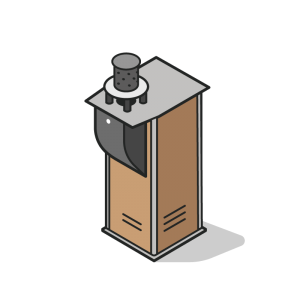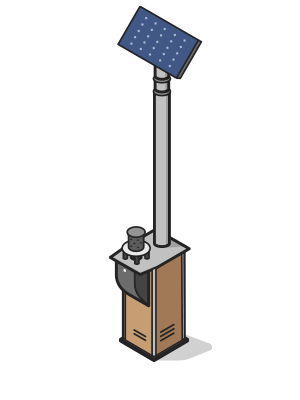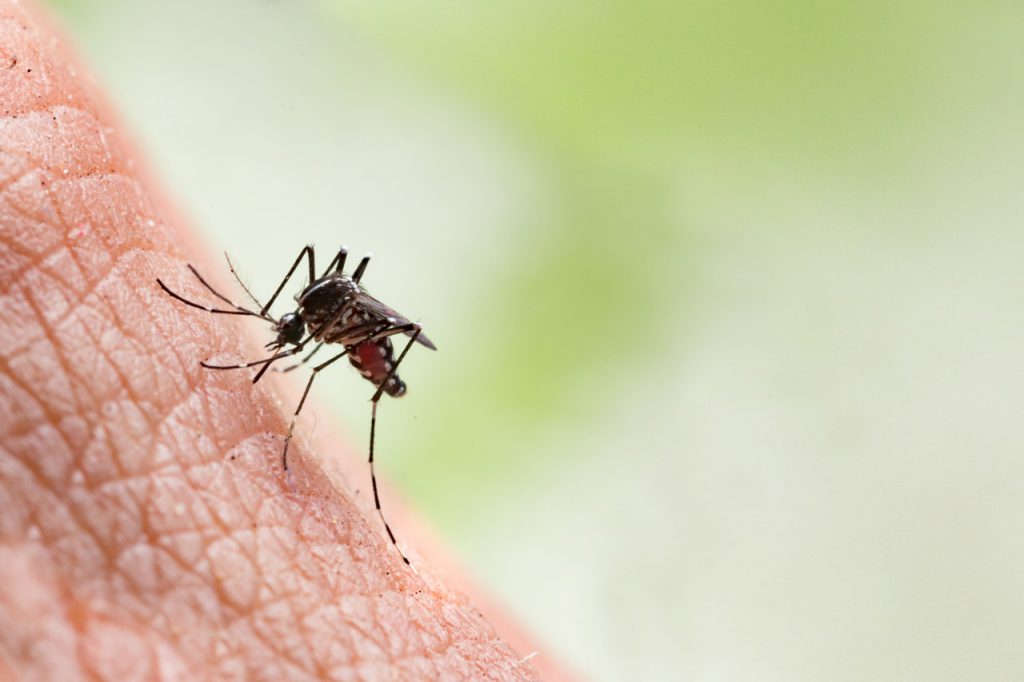Research & technology
With its innovative big data analysis, the only one of its kind in the world, Qista is committed to a new type of preventive healthcare: predictive mosquito control.
Going beyond effective and environmentally friendly mosquito control, Qista Lab also aims to use its technology for preventive healthcare. To this end, the Qista R&D teams are in high gear and always pushing their research further. Even though some works are not disclosed, the business communicates its research processes all the same.

Embedded technology
The Qista mosquito repellent solution has embedded technology that collects various data as well as performing its mosquito control action.
The Qista trap is equipped with monitoring tools that can provide a real time status report:
- Mosquito counter: find out the amount captured
- Identification lens: know the different species captured and the amount
- Environmental sensors (ozone, pollen, fine particles, etc.) : installed and operable as needed
- Weather sensors: anticipate potential spikes in proliferation
- Géolocalisation : rattacher toutes les données collectées à un point géographique précis
- Connectivité : transmettre les données, remonter les informations en temps réel et piloter les bornes à distance
Research technology
Analysis of captured mosquitoes
To assess the risks of an epidemic spreading or simply take a health status report of areas covered by mosquito traps, the Qista laboratory identifies different species and detects the presence of virus and bacteria in the mosquitoes captured by the traps.
The speed of the results means that the mosquito trap users can act with unprecedented responsiveness in the event of a spread of vector-borne diseases.
Mosquito breeding
Pushing expertise and knowledge even further, the Qista laboratory has created its own breeding site for different species of mosquitoes to study their properties and behaviour.
With the help of cages specifically for breeding insects and appropriate scientific equipment, this behavioural study allows Qista to observe the physiological properties of mosquitoes in different stages of life, from lay to adult.
Big Data
In response to the mosquito risk and spread of disease, Qista has implemented an analytical solution for the captured data sets. This big data processing does not currently exist on the market and performs predictive analysis over several years to prevent the spread of mosquito species and epidemic risks.

The BAM: technology for every requirement
Even though the technology and monitoring tools are identical in each trap, there are 3 models to meet different expectations.

Smart BAM
Mostly aimed at individuals and small tourist organisations, this trap fits perfectly in a garden or private park.

Smart BAM urbaine
A professional version of the trap aimed at communities, groups, medium and large organisations. This anti-intrusion and anti-graffiti model is often installed in public areas.

Light BAM
Self-sustaining version of the smart BAM, this trap has the same equipment as well as a streetlight and a solar panel for electrical autonomy. The Light BAM is most often installed in more isolated public areas with no electricity supply.

Not just mosquitoes!
Ticks, bed bugs and fleas are real plagues and some of these insects are the cause of significant public health problems. Alongside their mosquito research, Qista researchers are carrying out studies on other insect species.
This research aims to address once again the spread of these pests in an effective and environmentally friendly way.
Nos experts

Doctor Hamza Leulmi
Doctor in veterinary parasitology and vector-borne diseases
Doctor in human pathology, infectious diseases branch
With his dual specialisation and transversal skills, Dr Leulmi leads Qista’s Entomology Department. He is also the Microbiology and Molecular Biology Project Manager.

Anlamina Chamssidine Combo
Entomologist biologist specialising in parasitic and infectious diseases
Anlamina Chamssidine Combo is responsible for Qista trap implementation and field studies, as well as associated diagnoses.

César Barthes
Co-Founder and Chairman
César is tasked with carrying out field studies for optimal implementation of QISTA traps.











